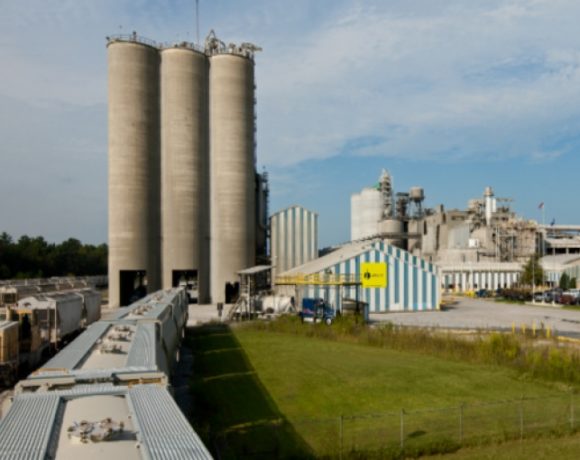Enka 2Q 2019 Profits Improve Year-on-Year on Stronger Exports, U.S. Dollar

Medellin-based specialty textiles and fibers giant Enka announced August 8 that its second-quarter (2Q) 2019 profits came-in at COP$4.9 billion (US$1.4 million), a big improvement over the 2Q 2018 net loss of COP$999 million (US$294,000).
Earnings before interest, taxes, depreciation and amortization (EBITDA) likewise improved by 35% year-on-year, to COP$14 billion (US$4.1 million), “driven by increasing the collection of PET [polyethylene terephthalate] bottles [as an environmentally friendly feedstock for specialty fibers] and the increase in the Colombian peso to U.S. dollar exchange rate,” according to Enka.
So far in 2019, Enka’s exports to the U.S. market are up 46%, and up 300% over the last two years, with the U.S. now representing 12% of total company revenues.
Meanwhile, first-half (1H) 2019 corporate-wide sales are up 1.8% year-on-year, hitting COP$200 billion (US$59 million), while total exports to all countries hit US$29 million, now representing 46% of the company’s revenues.
In the local Colombian market, revenues grew 5% year-on-year, “driven by a higher exchange rate, which offset the lower volume compared to 2Q 2018 (-2%),” according to Enka.
Total export revenues to all markets dipped slightly (by 1%), “mainly due to spot [one-time sales] business carried out in 2018 and lower dynamics of the Brazilian economy, which has been compensated with the higher exchange rate and greater growth in the North American market,” according to Enka.
The three main specialty lines of synthetic fibers, filaments and resins products collectively showed steady revenues year-on-year, at COP$62 billion (US$18 million), representing 31% of the company’s revenues in the period.
About 85% of these synthetic products go to the Colombian local market, with the remaining 15% exported mainly to Brazil.
“EKOPet” product (8,335 tonnes output) “remains stable and [production] continues to operate at maximum capacity, allocating 100% of the production to serve the local market,” according to Enka.
“EKOFibras” fibers (4,948 tonnes) volume fell 18% year-on-year “ mainly due to the decree of minimum import thresholds that favored 1Q 2018 and due to an increase in inventories in preparation for the start of the modernization project of this production line, which is expected to start operations in third-quarter 2019,” according to Enka.
“EKOPoliolefinas” polyolefins (250 tonnes) sales rose 70% in 2Q 2019 versus 1Q thanks to growing acceptance of this product in various markets.
“Some of the uses of our recycled resin are for baskets, packaging material and household products, among others. We have identified a great commitment of some brands to incorporate recycled material into their products as part of their sustainability strategies, which confirms the positive perspectives of this project,” according to Enka.
“Our goal is to develop the market for recycled polyolefins, in the same way as was done in PET. To achieve this, we have established alliances with world leaders in the industry, seeking to develop new products aimed at high value-added applications,” the company added.
Textile and Industrial Businesses
Textile sales grew 2% year-on-year, reaching COP$137 billion (US$40 million), of which 39% came from the national market, while 61% corresponds to exports.
Industrial threads (5,981 tonnes) sales dipped 11%, “mainly due to a lower demand for canvas for tires in the Brazilian market. However, higher sales to the North American market, in products with greater added value, have allowed this effect to be mitigated,” according to Enka.
Textile filaments (5,219 tonnes) volume declined 5% “mainly due to the decree of minimum import thresholds that favored the sales of polyester filaments in 1Q 2018 and lower sales to Argentina.”
Business Outlook: More Recycling
“In order to continue strengthening the circular [plastics recycling] economy in Colombia, last May [2019], in coordination with Bavaria, The Coca-Cola Company, Coca-Cola FEMSA, PepsiCo, and Postobón, the ‘Movimiento RE’ [recycling] program was launched in Barranquilla, Cartagena and Santa Marta, which seeks to promote and strengthen the recycling of PET in Colombia, with the aim of increasing the PET collection rate in this region by 30%,” according to Enka.
“Our [recycled] fibers plant modernization project is already in its final stage and is expected to be operational in 2019-Q3. We are convinced that with this project the value proposition of our ‘green’ businesses will be further strengthened, offering the market a broader portfolio with products of higher specifications.
“Once in operation, the homologation processes of the current products will begin and then the new developments will begin. In addition, with this project the foundations are laid for future growth of this business, because with additional investments in some processes, the current production capacity could be doubled,” the company added.
















